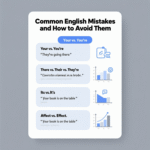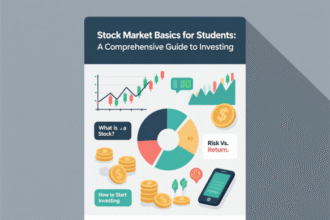Investing in 2025 has never been more accessible, thanks to the rise of user-friendly investment apps for beginners. These mobile platforms empower novice investors to take control of their financial futures with intuitive interfaces, low fees, and robust educational resources. Whether you’re looking to dip your toes into the stock market or build a diversified portfolio, the right app can make all the difference. This comprehensive guide explores the best investment apps for beginners in 2025, diving deep into their features, benefits, and unique offerings to help you make informed decisions and achieve your financial goals.
- Why Investment Apps Are Perfect for Beginners in 2025
- Top 10 Investment Apps for Beginners in 2025
- 1. Fidelity: The All-Round Champion for Novice Investors
- 2. Robinhood: Simplicity Meets Commission-Free Trading
- 3. SoFi Active Investing: A Holistic Financial Ecosystem
- 4. Charles Schwab: Robust Tools with Beginner-Friendly Design
- 5. Betterment: Hands-Off Investing for Beginners
- 6. Acorns: Micro-Investing for Effortless Savings
- 7. Webull: Advanced Tools for Aspiring Traders
- 8. Public: Social Investing for Community-Driven Beginners
- 9. Wealthfront: Premium Robo-Advisory for Beginners
- 10. E*TRADE: Versatile Platform for Growing Investors
- How to Choose the Best Investment App for Beginners
- Benefits of Using Investment Apps in 2025
- Risks and Considerations for Beginner Investors
- How to Get Started with Investment Apps
- Advanced Features for Growing Investors
- Comparing Investment Apps: A Detailed Breakdown
- The Future of Investment Apps in 2025 and Beyond
- Tips for Maximizing Your Investment App Experience
- Recommendations and Suggestions
- Frequently Asked Questions (FAQs)
Why Investment Apps Are Perfect for Beginners in 2025
The financial landscape has evolved dramatically, and investment apps for beginners are at the forefront of this transformation. These apps simplify the complex world of investing, making it approachable for those with little to no experience. With features like commission-free trading, fractional shares, and automated portfolio management, beginners can start investing with minimal capital and grow their wealth over time. Moreover, these platforms prioritize education, offering tutorials, webinars, and market insights to build confidence and knowledge.
In 2025, the best apps combine cutting-edge technology with user-centric design. They cater to diverse investment styles, from hands-off robo-advisors to active trading platforms. Security is also paramount, with most apps insured by the Securities Investor Protection Corporation (SIPC) for up to $500,000 in securities and $250,000 in cash. Below, we explore the top investment apps for beginners, highlighting their standout features, costs, and suitability for new investors.
Top 10 Investment Apps for Beginners in 2025
1. Fidelity: The All-Round Champion for Novice Investors
Fidelity is a powerhouse in the investment world, and its mobile app is a top choice for beginners in 2025. Renowned for its intuitive interface and extensive educational resources, Fidelity makes investing approachable and engaging. The app supports a wide range of investment options, including stocks, ETFs, mutual funds, and bonds, with no account minimums or commissions for stock and ETF trades.
Key Features of Fidelity
- Educational Content: Fidelity offers a wealth of learning materials, including articles, videos, and webinars tailored to beginners. Topics cover everything from basic stock trading to retirement planning.
- Fractional Shares: Known as “Stocks by the Slice,” this feature allows users to invest in high-priced stocks like Amazon or Tesla with as little as $1.
- Security: Biometric login and two-factor authentication ensure robust protection for your investments.
- Customer Support: 24/7 support via phone, chat, or in-person at Fidelity branches provides peace of mind for new investors.
Why It’s Great for Beginners
Fidelity’s clean interface and comprehensive resources make it ideal for those learning the ropes. However, some users note occasional navigation issues due to the app’s extensive features. Despite this, its award-winning status (NerdWallet’s Best Investing App 2025) underscores its reliability and beginner-friendliness.
Costs
- Trading Fees: $0 for stocks, ETFs, and options (plus $0.65 per options contract).
- Account Minimum: $0.
- Other Fees: No recurring account fees, but some mutual funds may have transaction fees.
2. Robinhood: Simplicity Meets Commission-Free Trading
Robinhood continues to dominate as a go-to app for beginners, thanks to its minimalist design and commission-free trading. In 2025, Robinhood has expanded its educational offerings, addressing past criticisms about limited resources. It’s ideal for those who want to trade stocks, ETFs, options, and cryptocurrencies without complexity.
Key Features of Robinhood
- Commission-Free Trading: No fees for trading stocks, ETFs, options, or crypto (other fees may apply).
- Fractional Shares: Invest in major companies with as little as $1.
- User-Friendly Interface: A sleek, intuitive design ensures easy navigation for beginners.
- Educational Expansion: New tutorials and market insights help users understand investing basics.
Why It’s Great for Beginners
Robinhood’s simplicity is its biggest strength, allowing absolute beginners to start trading within minutes. However, its gamified design may encourage impulsive trading, so discipline is key. User reviews praise its ease of use but note occasional concerns about platform reliability due to past outages.
Costs
- Trading Fees: $0 for stocks, ETFs, options, and crypto.
- Account Minimum: $0.
- Other Fees: Regulatory fees may apply; premium Robinhood Gold subscription ($5/month) offers advanced features.
3. SoFi Active Investing: A Holistic Financial Ecosystem
SoFi blends investing, banking, and financial planning into one seamless app, making it a top choice for beginners in 2025. With no account minimums and commission-free trading, SoFi is accessible to all. Its integration with other SoFi products (e.g., banking, loans) creates a unified financial hub.
Key Features of SoFi
- Automated Investing: SoFi’s robo-advisor builds and manages ETF portfolios at no extra cost.
- Fractional Shares: Start investing with as little as $1.
- Financial Planning: Free access to certified financial planners (CFPs) for SoFi members.
- Educational Resources: Webinars, blog posts, and in-app guides teach investing fundamentals.
Why It’s Great for Beginners
SoFi’s all-in-one approach simplifies money management for beginners. Its focus on education and free financial planning is a major draw, though its research tools are less robust than competitors like Charles Schwab. Users appreciate the app’s clean design and integration with banking services.
Costs
- Trading Fees: $0 for stocks and ETFs.
- Account Minimum: $0.
- Other Fees: SoFi Plus membership ($10/month) unlocks additional benefits like unlimited CFP access.
4. Charles Schwab: Robust Tools with Beginner-Friendly Design
Charles Schwab is a trusted name in investing, and its Schwab Mobile app is tailored for beginners while offering advanced tools for growth. With commission-free trading and a deep well of research, it’s perfect for those who want to learn while investing.
Key Features of Charles Schwab
- Stock Slices: Invest in S&P 500 companies with as little as $5.
- Educational Resources: Extensive articles, videos, and podcasts cover investing basics and advanced strategies.
- Customer Support: 24/7 support via phone, chat, or in-person at Schwab branches.
- Research Tools: Access to Morningstar reports and proprietary Schwab research.
Why It’s Great for Beginners
Schwab’s balance of simplicity and depth makes it ideal for beginners who want to grow their skills. Its robust customer support and no-fee mutual funds (over 4,000 available) are major advantages. Some users report a steeper learning curve for advanced features, but the app’s overall usability is highly rated.
Costs
- Trading Fees: $0 for stocks, ETFs, and options (plus $0.65 per options contract).
- Account Minimum: $0.
- Other Fees: No account maintenance fees; some mutual funds may have transaction fees.
5. Betterment: Hands-Off Investing for Beginners
Betterment is a leading robo-advisor, perfect for beginners who prefer automated portfolio management. Its user-friendly app builds diversified ETF portfolios based on your goals and risk tolerance, with no investment expertise required.
Key Features of Betterment
- Robo-Advisor: Automated portfolio creation and rebalancing with low-cost ETFs.
- Goal-Based Investing: Set goals like retirement or home purchase, and Betterment tailors your portfolio.
- Tax-Loss Harvesting: Automatically minimizes tax liability on investments.
- Socially Responsible Investing: Options for ESG-focused portfolios.
Why It’s Great for Beginners
Betterment’s hands-off approach is ideal for those who want to invest without managing trades. Users praise its intuitive interface and low fees, though some note limited customization compared to active trading apps. Its focus on long-term wealth-building makes it a strong choice for beginners.
Costs
- Management Fee: 0.25% annually for digital plan; 0.40% for premium plan with CFP access.
- Account Minimum: $0 for digital plan; $100,000 for premium plan.
- Other Fees: No trading fees; expense ratios for ETFs apply.
6. Acorns: Micro-Investing for Effortless Savings
Acorns pioneered the “round-up” feature, automatically investing spare change from purchases. In 2025, it remains a favorite for beginners who want to start small and build wealth passively.
Key Features of Acorns
- Round-Ups: Invests spare change from linked account purchases.
- Automated Portfolios: Builds diversified ETF portfolios based on risk tolerance.
- Educational Content: In-app articles and quizzes teach investing basics.
- Banking Integration: Includes a checking account and debit card for seamless money management.
Why It’s Great for Beginners
Acorns is perfect for those nervous about investing, as it requires minimal effort. Its round-up feature makes saving feel effortless, though fees can be high for small balances. Users love its simplicity but note that active traders may find it limiting.
Costs
- Subscription Fee: $3–$9/month, depending on plan tier.
- Account Minimum: $0.
- Other Fees: ETF expense ratios apply.
7. Webull: Advanced Tools for Aspiring Traders
Webull offers a robust platform for beginners interested in active trading. With commission-free trading and advanced charting tools, it bridges the gap between novice and experienced investors.
Key Features of Webull
- Commission-Free Trading: No fees for stocks, ETFs, or options.
- Paper Trading: Practice trading with a risk-free simulator.
- Advanced Charting: Over 100 technical indicators for market analysis.
- Extended Hours Trading: Trade before and after market hours.
Why It’s Great for Beginners
Webull’s free tools and paper trading make it ideal for beginners who want to learn active trading. However, its advanced features can overwhelm absolute novices. Users praise its charting capabilities but note occasional customer support delays.
Costs
- Trading Fees: $0 for stocks, ETFs, and options.
- Account Minimum: $0.
- Other Fees: Regulatory fees may apply.
8. Public: Social Investing for Community-Driven Beginners
Public combines investing with social features, allowing users to follow other investors and share strategies. Its commission-free trading and fractional shares make it accessible for beginners.
Key Features of Public
- Social Investing: Follow other investors and see their trades.
- Fractional Shares: Invest with as little as $1.
- Thematic Investing: Curated portfolios based on themes like technology or sustainability.
- Educational Content: In-app articles and community discussions.
Why It’s Great for Beginners
Public’s community-driven approach appeals to beginners who value transparency and collaboration. Its simple interface and low entry point are major draws, though its research tools are less extensive than competitors.
Costs
- Trading Fees: $0 for stocks and ETFs.
- Account Minimum: $0.
- Other Fees: Small transaction fees for crypto trades.
9. Wealthfront: Premium Robo-Advisory for Beginners
Wealthfront is another top robo-advisor, offering automated investing with advanced features like tax-loss harvesting and portfolio rebalancing. Its clean interface is perfect for beginners seeking a hands-off approach.
Key Features of Wealthfront
- Automated Investing: Builds diversified ETF portfolios based on risk and goals.
- Tax-Loss Harvesting: Minimizes tax liability automatically.
- Cash Management: High-yield savings and checking accounts integrated with investing.
- Financial Planning Tools: Plan for retirement, home purchases, or education.
Why It’s Great for Beginners
Wealthfront’s low fees and automation make it ideal for beginners who want to set and forget their investments. Users appreciate its sleek design but note that active trading options are limited.
Costs
- Management Fee: 0.25% annually.
- Account Minimum: $500.
- Other Fees: ETF expense ratios apply.
10. E*TRADE: Versatile Platform for Growing Investors
E*TRADE offers a user-friendly app with a mix of beginner and advanced features. Its commission-free trading and extensive research tools make it a strong choice for those starting their investment journey.
Key Features of E*TRADE
- Commission-Free Trading: No fees for stocks, ETFs, and mutual funds.
- Educational Resources: Tutorials, webinars, and market analysis for all levels.
- Customizable Dashboards: Tailor the app to your preferences.
- Retirement Planning: Robust tools for IRA and 401(k) accounts.
Why It’s Great for Beginners
E*TRADE balances simplicity with powerful tools, making it suitable for beginners who want to grow into advanced investing. Some users find the app less intuitive than competitors, but its comprehensive offerings outweigh this drawback.
Costs
- Trading Fees: $0 for stocks, ETFs, and mutual funds.
- Account Minimum: $0.
- Other Fees: Options contracts cost $0.65 each.
How to Choose the Best Investment App for Beginners
Selecting the right investment app for beginners depends on your goals, budget, and preferred investment style. Here are key factors to consider:
- Ease of Use: Look for an intuitive interface that simplifies trading and portfolio management. Apps like Robinhood and SoFi excel in this area.
- Fees and Costs: Prioritize apps with low or no trading fees and minimal account minimums. Fidelity and Charles Schwab are strong contenders.
- Educational Resources: Comprehensive learning materials are crucial for beginners. Fidelity and Charles Schwab offer robust content.
- Investment Options: Ensure the app supports the assets you want to invest in, such as stocks, ETFs, or crypto. Robinhood and Webull provide diverse options.
- Automation vs. Active Trading: Decide whether you prefer a hands-off robo-advisor (Betterment, Wealthfront) or active trading (Robinhood, Webull).
- Security: Choose apps with SIPC insurance, encryption, and two-factor authentication.
- Customer Support: Responsive support is essential for beginners. Charles Schwab and J.P. Morgan excel in this area.
Benefits of Using Investment Apps in 2025
Investment apps have revolutionized how beginners approach wealth-building. Here’s why they’re a game-changer:
- Accessibility: Start investing with as little as $1 through fractional shares.
- Low Costs: Commission-free trading and low management fees maximize returns.
- Education: In-app resources teach investing fundamentals, from stock selection to risk management.
- Flexibility: Trade anytime, anywhere, with mobile-first platforms.
- Automation: Robo-advisors handle portfolio management, ideal for busy beginners.
- Community: Apps like Public foster collaboration and learning through social features.
Risks and Considerations for Beginner Investors
While investment apps make investing easier, there are risks to understand:
- Market Volatility: Stock prices can fluctuate, and losses are possible, especially in 2025’s unpredictable market.
- Fees: Even commission-free apps may charge regulatory or subscription fees.
- Overtrading: Gamified apps like Robinhood may encourage impulsive decisions.
- Learning Curve: Advanced features on apps like Webull can overwhelm beginners.
- Security Risks: Ensure the app uses strong encryption and SIPC insurance.
To mitigate risks, start small, diversify your portfolio, and leverage educational resources to build knowledge.
How to Get Started with Investment Apps
- Choose an App: Select an app based on your goals, budget, and preferred investment style.
- Open an Account: Most apps require basic information and link to a bank account. Setup takes minutes.
- Fund Your Account: Start with a small amount, even $1, to test the waters.
- Explore Educational Content: Use in-app resources to learn about investing.
- Start Investing: Choose stocks, ETFs, or automated portfolios based on your risk tolerance.
- Monitor and Adjust: Regularly check your portfolio and adjust as needed.
Advanced Features for Growing Investors
As beginners gain confidence, many apps offer advanced tools to support growth:
- Robo-Advisors: Betterment and Wealthfront provide automated portfolio management with tax optimization.
- Paper Trading: Webull’s simulator lets you practice without risking real money.
- Advanced Charting: Webull and E*TRADE offer technical indicators for market analysis.
- Social Investing: Public’s community features allow you to learn from experienced investors.
- Retirement Planning: Fidelity and E*TRADE provide robust tools for IRAs and 401(k)s.
Comparing Investment Apps: A Detailed Breakdown
| App | Trading Fees | Account Minimum | Key Features | Best For |
|---|---|---|---|---|
| Fidelity | $0 (stocks, ETFs) | $0 | Fractional shares, robust education | Long-term investors, beginners |
| Robinhood | $0 (stocks, ETFs, crypto) | $0 | Commission-free, simple interface | Active traders, absolute beginners |
| SoFi | $0 (stocks, ETFs) | $0 | Automated investing, financial planning | Holistic money management |
| Charles Schwab | $0 (stocks, ETFs) | $0 | Stock Slices, extensive research | Beginners and advanced investors |
| Betterment | 0.25% annually | $0 (digital) | Robo-advisor, tax-loss harvesting | Hands-off investors |
| Acorns | $3–$9/month | $0 | Round-ups, automated portfolios | Micro-investors |
| Webull | $0 (stocks, ETFs) | $0 | Paper trading, advanced charting | Aspiring active traders |
| Public | $0 (stocks, ETFs) | $0 | Social investing, fractional shares | Community-driven investors |
| Wealthfront | 0.25% annually | $500 | Robo-advisor, cash management | Passive investors |
| E*TRADE | $0 (stocks, ETFs) | $0 | Customizable dashboards, retirement tools | Growing investors |
The Future of Investment Apps in 2025 and Beyond
In 2025, investment apps for beginners are leveraging AI and machine learning to enhance user experiences. Features like AI-powered portfolio recommendations, predictive market analysis, and personalized financial planning are becoming standard. Additionally, apps are integrating sustainability, with ESG-focused portfolios gaining traction. As regulatory landscapes evolve, apps are prioritizing transparency and security to build trust with users.
Tips for Maximizing Your Investment App Experience
- Start Small: Begin with small investments to learn without significant risk.
- Diversify: Spread investments across stocks, ETFs, and bonds to reduce risk.
- Use Educational Tools: Take advantage of in-app resources to build knowledge.
- Set Goals: Define clear financial objectives, like saving for retirement or a home.
- Monitor Fees: Understand all costs, including management fees and ETF expense ratios.
- Stay Disciplined: Avoid impulsive trading, especially on gamified apps like Robinhood.
Recommendations and Suggestions
We recommend starting with Fidelity or SoFi for their robust educational resources and low fees, ideal for beginners seeking a comprehensive platform. For those who prefer automated investing, Betterment or Wealthfront are excellent choices due to their low-cost robo-advisors. If active trading appeals to you, Robinhood or Webull offer commission-free trading and user-friendly interfaces. Always align your choice with your financial goals, risk tolerance, and desired level of involvement.
Frequently Asked Questions (FAQs)
- What are the best investment apps for beginners in 2025? Top apps include Fidelity, Robinhood, SoFi, Charles Schwab, Betterment, Acorns, Webull, Public, Wealthfront, and E*TRADE, each offering unique features like commission-free trading and educational resources.
- Do investment apps charge fees? Many apps offer commission-free trading, but some charge management fees (e.g., Betterment’s 0.25%) or subscription fees (e.g., Acorns’ $3–$9/month). Always check for hidden fees like ETF expense ratios.
- Can I start investing with $1? Yes, apps like Robinhood, SoFi, and Public allow fractional share investing, enabling you to start with as little as $1.
- Are investment apps safe? Reputable apps are SIPC-insured up to $500,000 and use encryption and two-factor authentication. Always verify the app’s regulatory compliance.
- What is a robo-advisor? A robo-advisor, like Betterment or Wealthfront, automatically builds and manages a portfolio based on your goals and risk tolerance, ideal for hands-off investors.
- Can I trade cryptocurrencies on investment apps? Yes, apps like Robinhood and Webull support crypto trading, though fees and availability vary.
- Which app has the best educational resources? Fidelity and Charles Schwab offer extensive articles, videos, and webinars tailored for beginners.
- What is fractional share investing? Fractional shares allow you to buy a portion of a stock, enabling investment in high-priced stocks with small amounts.
- Can I use multiple investment apps? Yes, using multiple apps can diversify your portfolio and leverage different features, such as robo-advisors and active trading.
- How do I choose the right investment app? Consider ease of use, fees, investment options, educational resources, and customer support based on your goals and risk tolerance.
- What is the minimum amount to start investing? Many apps have no minimums (e.g., Fidelity, Robinhood), while others like Wealthfront require $500.
- Are investment apps good for retirement planning? Yes, apps like Fidelity and E*TRADE offer robust IRA and 401(k) tools for long-term planning.
- Can beginners lose money on investment apps? Yes, investing involves market risk, and losses are possible. Diversify and start small to mitigate risks.
- Do investment apps offer customer support? Most apps provide support via phone, chat, or email, with Charles Schwab and J.P. Morgan excelling in responsiveness.
- How do I start investing with an app? Choose an app, open an account, link a bank account, fund it, and start investing using in-app tools and resources.



















